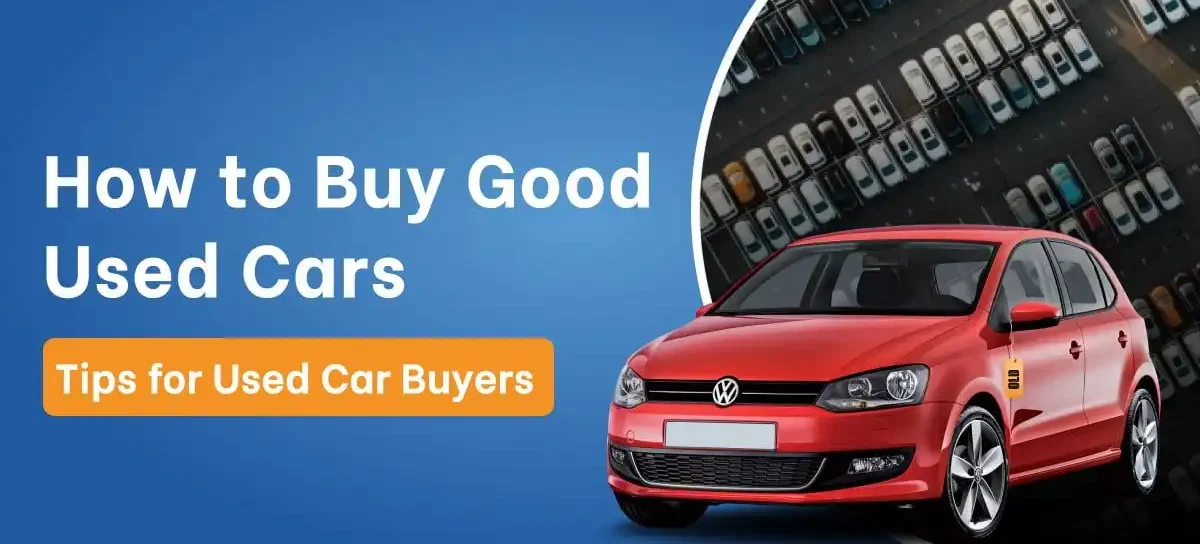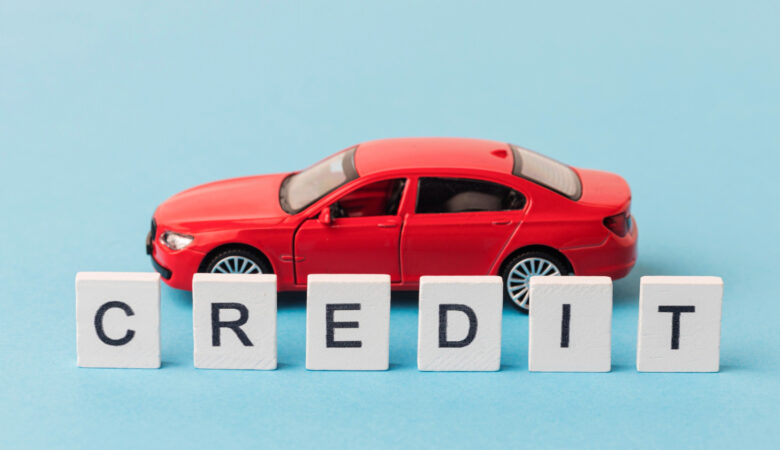Good Deal on Used Car: Why one should choose to buy a used car? It is proven fact that a new car depreciates about 10% the moment it leaves the showroom and loses another 20% of its value within its first year. After just three years, an average car is worth about 60% of its value when it was brand new. That might sound a bit depressing for the original owner. But it represents a deal of a lifetime for the prudent used-car buyer.
A model which is just one to three years older is still likely to be under the manufacturer’s warranty, and unless it has been abused unabashedly by its owner, it has likely in store many more years of good service to offer. Also, you should know that the used car marketplace is extremely huge. About 43 million used vehicles keep changing hands every year which easily dwarfs the 17 million in new car sales.
Good Deal On Used Car:

Shopping for a Good Deal on Used Car can be really confusing, complex, and can induce anxiety.
Getting a good deal on a used car has to be done by conducting thorough research of the market, checking out and test-drive the cars, and also comparing prices on offer.
Private parties seem to be less expensive but they come with greater risk. The dealer lots and the certified pre-owned vehicles can prove to be more reliable and they are also backed by lemon laws in most states.
Research is Important: Used Cars for Sale

So, how can you make sure that you are getting a good deal? You have to do everything you can before you actually go to buy the car. That means you have to research what make and model you have interest in and how much they have a price in your area.
You have to research for specific vehicles that have the features and also the mileage you are looking for. By doing so, you introduce competition to the car-buying process through the process of comparison. A seller might not be willing to give the lowest price you find but it never hurts to ask.
Once you are sure of what you want to buy, it is now time to check out the car physically. Take the car for a test drive and ensure that everything the seller says about it is true. Don’t forget to get the vehicle history report (Carfax and AutoCheck are the two popular choices among the customers) in order to confirm the odometer reading, the history of ownership, and also the reports on accidents and flood damage.
Read More: Best Cheapest Ways To Rent A Car
Private Sellers:
When shopping for used cars, note that dealers usually tend to charge at least 10% more than private sellers. Most people selling used cars are not in any form professional salespeople and have not skill enough to haggle. Also, their reason for selling the car might not be purely monetary.
They might be moving out to some other place, or having purchased a new car, they now need to make space in their driveway. However, before you hand money to a private seller, make sure they sign the title (which is also called the pink slip) and give it over to you.
You will also need the best insurance for car before you drive it away. It is no doubt a very less structured process of buying a Good Deal on Used Car than buying from a dealer. However, if you are looking to save as much money as possible on the car and also if you trust the private seller, then a private party purchase could work wonderfully for you.
Dealers:

Sure, it is costly, but the dealer’s markup can come with its own substantial advantages. First of all, it is very easy to shop from a range of cars available in a dealer’s lot than roaming around all over town to cross-shop from the individual sellers. Dealers will also more likely to clean and perform a basic inspection of a car before they put it on display.
These dealers are governed by Federal Trade Commission rules as well as state and local regulations. If you are buying from an established business then it also has a reputation to uphold. To build good customer relationships, they may also offer some sort of warranty, even if it is only for 30 days. Buyers, however, should inquire about how these warranties will be honored and where the needed repairs will be made, if necessary.
Read More: 5 Best Ways To Sell Your Car
Certified Pre-owned (CPO):
Certified pre-owned (CPO) is offered by most of the luxury brands, such as Lexus and Mercedes-Benz, and also by the mainstream makers such as Nissan and Chevrolet. CPO vehicles are meticulously inspected, and all the maintenance issues are addressed. They are made sound cosmetically to ensure that there are no shredded interiors, bashed fenders or any missing trim.
By their nature, certified cars are sold only through dealers or manufacturers themselves and not by private individuals. When asking a dealer about a certified car, make them show you its detailed inspection report, which should have the list all of the areas checked. Look for whether or not there were any recalls on the model and minute details such as the thickness of the brake pads. CPO cars generally have less wear and tear.
Mercedes, for instance, only certifies cars that are six years old or less, with fewer than 75,000 miles. However, you have to pay extra for CPO cars. There is usually a $1,000 premium on the CPO cars. But you are also getting the cream of the crop as far as used cars are concerned. It converts used-car-buying experience into a new-car-buying one.
Like new cars, CPO vehicles are at the best prices at the end of the month when dealers are looking to fulfill their quotas and are more flexible to haggling. However, a used car sale may not be generally cyclical in the same way, though timing can still play an important role.
For instance, if your area gets a lot of snow, you are more likely to get a better deal on a convertible in the fall and winter months. Opposite to this, there will usually be an uptick in all sales around April. When people spend their tax refunds to buy used cars and hence, avoid shopping around this time of the year.
Discontinued Model:
Buying a car that has been discontinued by the maker or has been slow-selling in the market is another good option. Dealers have a limited amount of space and will give a heavy discount on these vehicles just to make way for the new models.
Negotiation:

Knowledge can prove to be your best resource when it comes to getting the best deal. Knowing what other cars go for sell like the one you are bargaining over can prove to be the key to talking down a price. Here’s where your haggling skills can come into play.
Simply accepting the dealer’s price as the lowest price possible can easily become a classic case of buyer’s remorse. Unlike a new car, which has never been driven past the dealer’s showroom, a used car has already been on the road and therefore, it has already lost some of its original monetary value.
When you buy a car that has been in use for a year or two, it is likely to have depreciated to its biggest value drop already. This depreciation gives the buyer some leverage in terms of persuading the dealer to give you a better deal on price.
Strategy:
You don’t want to go in with the wrong approach when all you need is a lower purchase price. If you come off as too demanding then the dealer may not be making any concessions in your favor. And if you choose to go in too soft then they might just see you as a pushover.
When you sit down with the salesperson for the final business and present your offer, try to be firm but polite. Let them know that you have come prepared and have done your homework well. Let them know that you have an idea of what the car is worth.
Don’t let the dealer try to steer the conversation off the course; stay focused on the business at hand. A salesperson might use other tantrums as a source of distraction by discussing financing, insurance or freebies like a maintenance plan. Don’t fall into this trap and prepare to avoid it at all costs.
Take this opportunity to make your case in clear words as to why the dealer should offer you a lower price. For example, if you have observed the same car sitting at the same place for weeks. Remind the dealer that cutting you a good deal would help them to free up space for a new vehicle.
If during your inspection something minor turned up that you’ll need to have repaired then be sure to point that out to the salesperson. The objective here is to get the dealer to accept anything that will justify accepting your offer.
Persistence:

Negotiating is a very fine art and sometimes the dealer may simply not want to listen to what you have to say. Their ploy is to adopt hardball tactics to wear you down and this is where the toughest test of your negotiating skills will be.
If your offer goes refuse at once then don’t wear out your welcome. Just thank the salesperson for their time and let them know that you’ll be looking elsewhere for a vehicle. You can hand over your phone number and say that if they happen to change their mind about the offer, then they can give you a call. Then you just have to wait and see what happens.
It is very much possible that in a day or two the dealer might call you to let you know that they have reconsidered your offer. If this does not happen, then that’s a sign to move on to the next used car dealer and begin the entire process again. It can surely be time-consuming and tiring but at the end of the day, you will be happy if your negotiation allows you to purchase the car of your choice at the right price.
Conclusion:
Knowing what you want and what it will cost you is equivalent to almost getting halfway there. Check NADA, Kelley Blue Book or Edmunds if you are researching for pricing information. Both dealers and private sellers have their own pros and cons. But if you inspect thoroughly and test drive the car prior to purchase, then you will always end up making a good deal in the end.
Read More:
Annual Cost Of Pet Ownership: Can You Afford A Pet?





Such a wonderful article. You have explained the importance of doing initial research before purchasing a car regarding its dealers, private sellers, etc. which helps us to get a good deal.
Thank you for sharing.